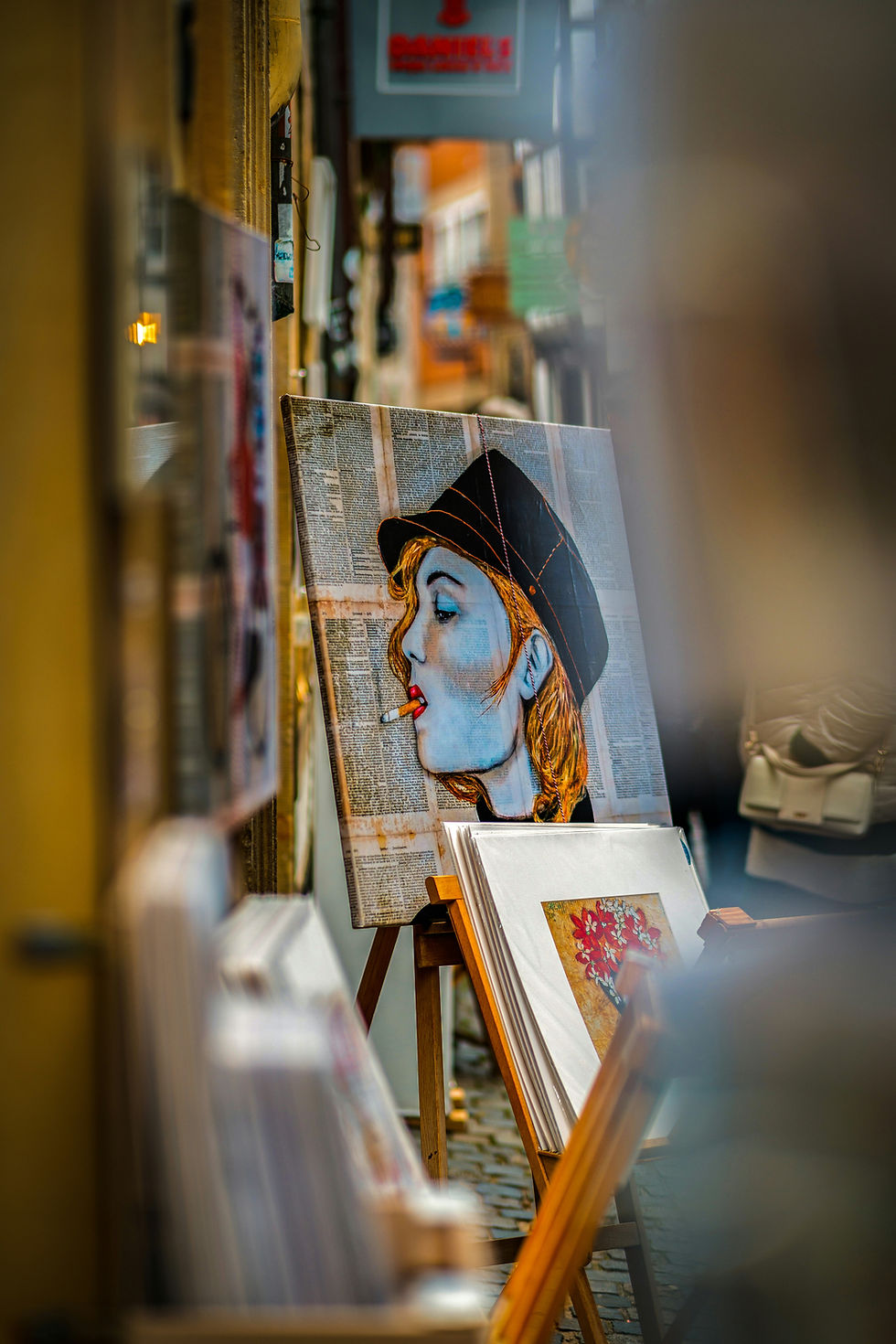Mixed Media Art: Fusing Traditional and Digital Techniques
- Mitt Chen

- Jun 9, 2025
- 2 min read
What Is Mixed Media Art?
Mixed media art involves combining multiple materials and techniques within a single artwork. Traditionally, this might include acrylic paint with photography or collage with textiles. In 2025, artists are increasingly integrating digital elements—like AI-generated visuals or augmented reality—with physical mediums, creating hybrid artworks that challenge conventional boundaries.

🌐 The Digital Revolution: Where Pixels Meet Paint
Today's mixed media artists are blending traditional craftsmanship with digital innovation:
Refik Anadol: Utilizes AI to create data-driven sculptures and immersive installations that transform architectural spaces.
Joshua Davis: Pioneers generative art by combining algorithmic design with hand-painted elements.
Petra Cortright: Creates digital paintings using software tools, then transfers them onto physical surfaces like aluminum or canvas, often adding traditional painting techniques.
🔍 Why Artists Are Merging Mediums
Creative Freedom: Digital tools allow for limitless experimentation, while traditional materials provide tactile depth.
Expanded Reach: Hybrid artworks can be shared digitally, exhibited physically, and even tokenized as NFTs, reaching diverse audiences.
Immersive Experiences: Combining mediums enables multi-sensory artworks that engage viewers in novel ways.(verisart.com)
💡 Emerging Artists & Notable Works
Sofia Crespo: Explores the intersection of AI and biology, creating artworks that mimic natural forms.
Madeline Gannon: Integrates robotics with sculpture, crafting interactive installations that respond to human presence.
Diana Sinclair: Combines photography with augmented reality to address themes of identity and memory. (Instagram)
Beeple (Mike Winkelmann): Known for digital collages that comment on contemporary culture, notably selling an NFT artwork for $69 million. (Christie's)
🧠 Mixed Media in the Investment Context
Market Growth: Collectors and galleries are increasingly valuing hybrid artworks that bridge traditional and digital realms.
Authentication: Platforms like Verisart provide blockchain-based certificates of authenticity for both physical and digital components of mixed media art.
Investment Insight: Hybrid artworks offer diversified value—combining the tangible appeal of physical art with the innovation and reach of digital mediums.
🧰 Tools & Platforms for Artists
Procreate: A digital illustration app that supports mixed media workflows.
Blender: Open-source 3D creation suite used for modeling, animation, and rendering.
Adobe After Effects: Software for creating motion graphics and visual effects, often used in projection mapping.
AI Tools: Platforms like Midjourney and DALL·E enable artists to generate visuals through text prompts.
📍 Where to Experience Mixed Media Art
MoMA PS1 (New York City): Showcases experimental and hybrid artworks that push the boundaries of contemporary art.
The Broad (Los Angeles): Features a collection of postwar and contemporary art, including mixed media installations.
CADAF Art Fair: An international fair highlighting digital and mixed media art, with editions in Paris, New York, and Miami.
💬 Final Thoughts
In an era where the lines between the physical and digital are increasingly blurred, mixed media art stands at the forefront of creative innovation. By merging traditional techniques with digital tools, artists are crafting works that resonate on multiple levels—visually, conceptually, and experientially. For collectors and investors, these hybrid artworks represent not just aesthetic value but also a stake in the evolving narrative of art in the digital age.








Love seeing tradition collide with tech like this